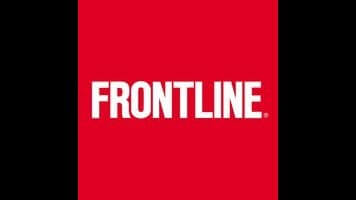Daily fantasy sports logic is even more specious under Frontline’s spotlight

On the off chance there are any Americans who somehow missed the billboards, subway turnstiles, TV commercials, banner ads, cable partnership announcements, radio spots, or podcast sponsorships that together made up a relentless $230 million media blitz preceding the most recent NFL season, they ought to know that there are a couple of tenacious tech companies that would really like their money—but purely for “entertainment.” For over a year, PBS and The New York Times have collaborated on a joint investigation into online offshore sports betting havens, as well as DraftKings and FanDuel, the legally dubious titan sites that, for the time being, dominate the daily fantasy industry. Findings from those inquiries, including an alleged insider trading scandal, have caught the attention of state and federal officials, some of whom have called into question the adequacy of fantasy and betting sites’ reliance on self-regulation.
“The Fantasy Sports Gamble,” directed and co-written by Frank Koughan, is Frontline’s one-hour synopsis of how a loophole in the well-meaning Unlawful Internet Gambling Enforcement Act of 2006 laid the groundwork for daily fantasy’s proliferation, and how more old-fashioned “legal” foreign betting sites are using domestic data centers to seemingly skirt U.S. federal laws. To illustrate the complex, jurisdiction-hopping digital and financial activity that fuels the industry, correspondent Walt Bogdanich consults investigative reporters James Glanz and Agustín Armendariz to physically track down the operatives of illegal online gambling. It’s a rabbit hole that travels through fake retail sites, the Curaçaoan Ministry of Economic Development, and servers across the world, including many illegally within the United States. Bogdanich also meets with politicians, attorneys, consultants and experts to consider the rationale for fantasy sites’ exemption from laws prohibiting other types of gaming.
First, a history of what went wrong from the UIGEA sponsor himself, former Iowa Republican representative Jim Leach: “The daily idea of fantasy sports was not conceived of when the bill was passed, partly under the assumption fantasy sports are kind of a fun activity that were a very modest proportion in size.” According to an industry lobbyist tasked with fighting the original bill, seasonal fantasy games were spared due to a grassroots call to keep them exempt. With firm pressure from the NFL to pass effective anti-betting legislation, an accommodation was made in the interest in moving the bill along.
Out of reach from federal prosecutors, weekly fantasy sites plowed through the small niche intended for office pools. Poker players spilled over from a then-illegal game to a legal (or at least more accessible) one, applying similar strategies and ultimately cultivating a similar insider ring of professional winners to feed on what one player refers to as “fish.”

 Keep scrolling for more great stories.
Keep scrolling for more great stories.